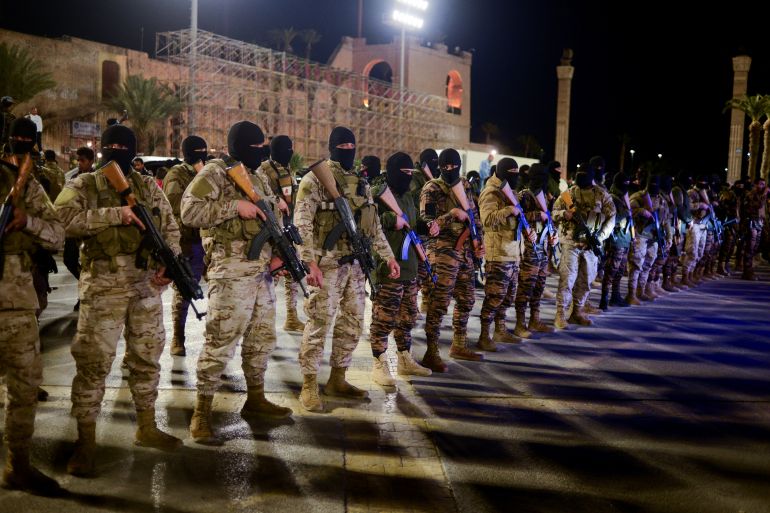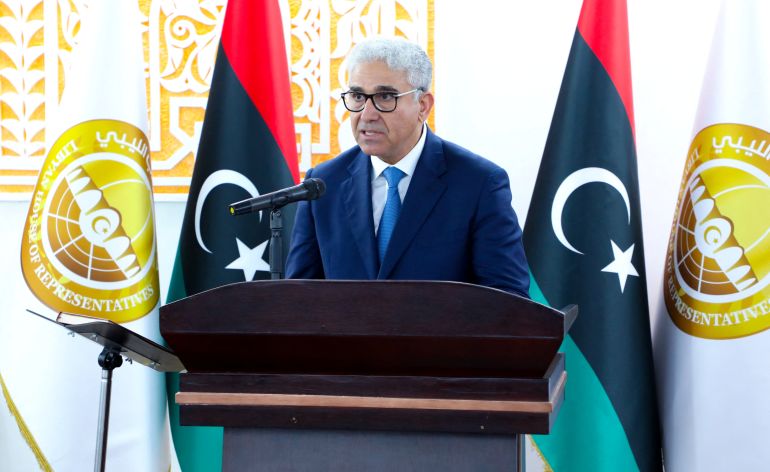Libya armed groups backing rival PM withdraw from Tripoli
Move by pro-Bashagha armed groups could be a sign of de-escalation as UN tries to bring rival administrations together.

Libya’s parliament-appointed Prime Minister Fathi Bashagha said that armed groups backing him have withdrawn from positions around Tripoli, after the UN warned of a new escalation in the divided country.
Libya has had rival administrations since the eastern-based assembly swore in Bashagha as prime minister earlier this month in a challenge to interim Prime Minister Abdul Hamid Dbeibah. Dbeibah has refused to hand over power to Bashagha, arguing that his own administration, installed last year under a United Nations-led peace process, had a mandate to rule until elections.
Keep reading
list of 3 itemsExplainer: What is fuelling Libya’s instability?
Libya’s biggest oilfield halts production as crisis deepens
Pro-Bashagha forces had deployed on the eastern edges of Tripoli on Thursday, prompting the UN mission in Libya (UNSMIL) to warn against any escalation. But Bashagha’s office said in a statement in the early hours of Friday that the groups had “opted not to use arms, and to return to their bases”.
The groups had mobilised “to provide security, not to wage war”, it said.
Bashagha had said on Wednesday that he would be in Tripoli in “two or three days”, raising fears that fighting could break out between rival armed groups.

Libya has been riven by conflict since the 2011 revolt that toppled former leader Muammar Gaddafi, and has had two rival governments before: from 2014 until Dbeibah was sworn in last year.
Washington’s ambassador to Libya, Richard Norland, had also warned on Thursday about spiralling tensions.
Late on Thursday evening, he said he had spoken to Dbeibah and Bashagha, praising what he said were moves to resolve the standoff peacefully.
He commended Dbeibah’s “commitment to protect lives” and Bashagha’s “willingness to de-escalate tensions”.
“Libya’s stability and unity can only be sustained through dialogue and respect for the right of freedom of movement throughout the country,” he tweeted.
In a recording published on Friday, Bashagha said he was “ready for any dialogue” and repeated that he was “a supporter of peace, not war”.
“We reassure our compatriots in Tripoli that there will not be a war,” he said.
The UN’s top official in Libya, Stephanie Williams, had offered on March 5 to mediate between Dbeibah and Bashagha in an attempt to bring Libya’s rival administrations together. Both sides have been asked to nominate six delegates each to form a joint committee to work towards a constitutional framework for elections.
However, despite plans for the committee to meet on March 15, only Libya’s High Council of State, which backs Dbeibah, has so far agreed to nominate delegates.